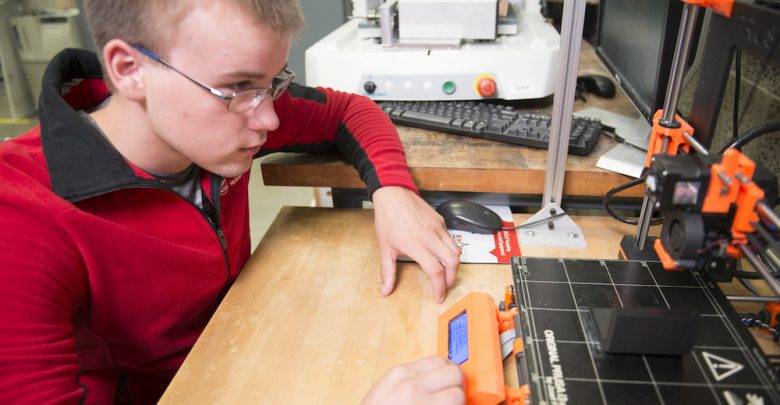A team of students from Northern Illinois University are leveraging design and 3D printing technologies to help product development company RadMax consolidate and improve its proprietary axial vane rotary devices.
RadMax, a Spokane, Washington-based company owned by Regi U.S., Inc., designs and manufactures a range of rotary engines, compressors, pumps and gas expanders for civilian, commercial and government applications. The company is also the latest to partner with NIU’s College of Engineering and Engineering Technology’s new Maker Space.
Through the academic-industrial collaboration, NIU students are utilizing the Maker Space’s equipment—including metal AM capabilities—to come up with optimized solutions for RadMax components, helping to make them smaller, lighter and more energy efficient. The mutually beneficial partnership will provide the students with hands on experience consulting with a real company.

“It’s similar to an internship experience,” said Matt McCoy, a sophomore mechanical engineering student from Downers Grove. “They’re colleagues in a sense. We’re working directly with the engineers at this company. We’re asking them questions. They’re asking us questions.”
The NIU students are working under associate professor and interim chair for Mechanical Engineering Federico Sciammarella to develop a 3D printed refrigerant gas expander prototype. The metal 3D printed expander will replace pressure regulation and other throttling type valves which are currently used in air conditioning and refrigeration, as well as natural gas, steam and other pressurized gas applications.
When the metal 3D printed prototype is complete, RadMax will test it against other prototypes manufactured using traditional production processes to compare production speed, cost, weight, parts count, strength and performance. 3D printing is, at the very least, enabling the company to reduce its product development timelines and prototyping costs.
“I think the fact the students have the flexibility and freedom to explore the technology allows us to explore the boundaries,” commented Sciammarella. “That’s been our goal all along with the Maker Space, to let them have a place where they can grow and learn and explore.”

The collaboration with RadMax, organized by the company’s military and aerospace consultant James Metzger, will continue throughout 2019.
NIU Maker Space
Since the Maker Space opened at NIU in 2017, students have had the opportunity to work on a range of projects that have demanded creativity, skill and innovation. For instance, they fixed a broken scoreboard at NIU’s stadium using 3D printing as well as helped to develop accessibility devices on campus for people with disabilities.
The students will soon also partner with the McHenry County Historical Society to 3D print missing parts from antiques and other historical objects, such as a one-room school hand bell, a candle stick holder and a tin lantern.
“I thought it would be a great opportunity to highlight the past with new 3D technology,” said Kira Stell, curator for the McHenry County Historical Society. “I will have the original artifacts on display, and the public can touch the 3D replica.”
Source: 3dprintingmedia.network


